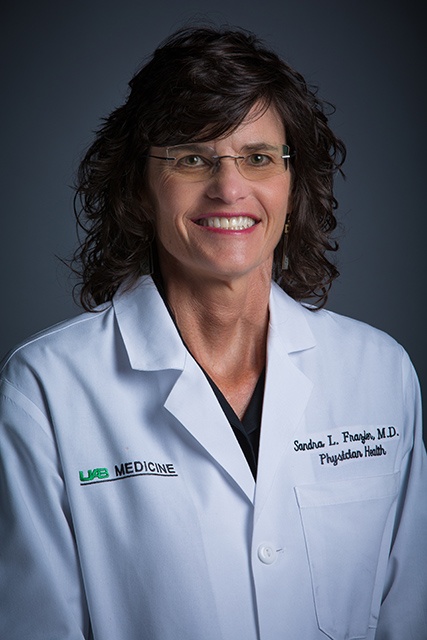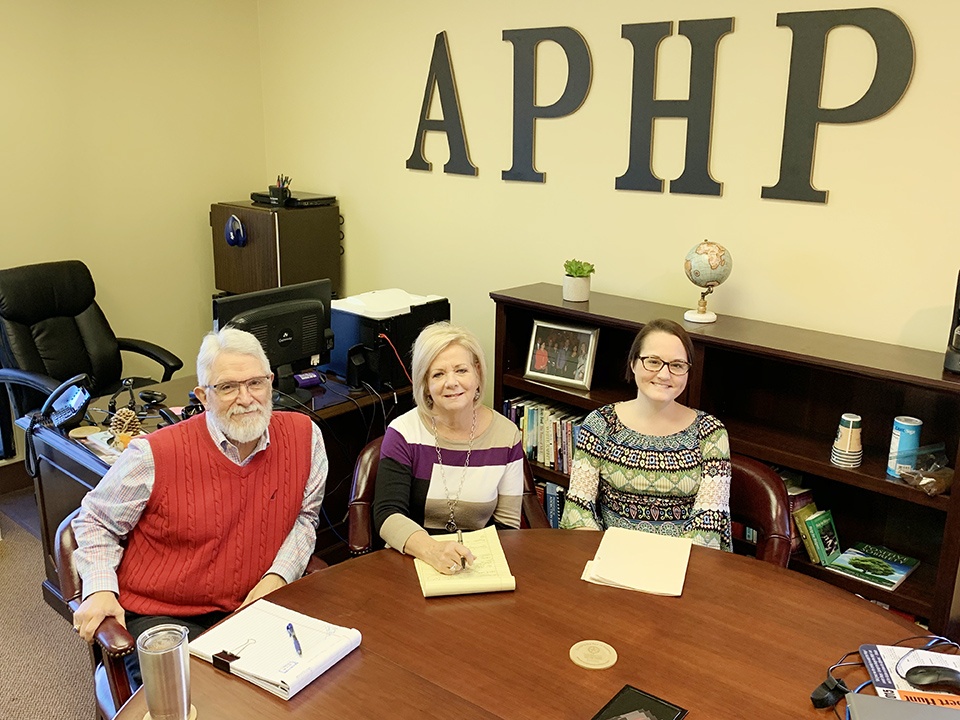Physicians are not supposed to get sick. We want to believe they are steely-eyed superheroes who never get a cold, never get broken bones, never need the same treatment for ailments as their patients. Physicians are unwavering in their dedication to their patients and the art of medicine…sometimes sacrificing the one thing they have that can keep them moving along in the profession. Their health. So, what happens when physicians become patients?
According to a study by The Mayo Foundation for Medical Education and Research and published by Pew Charitable Trusts, more than one in 10 physicians become addicted to drugs or alcohol, a slightly higher rate than in the general population. Burnout, a recognized problem in the medical professions, and the easy availability of drugs likely make addiction more common among doctors.

“Physicians are not above the human condition. We are susceptible to the same illnesses as our patients. Yet we are often reluctant to ask for help,” said Sandra Frazier, M.D., medical director of the Alabama Physician Health Program. “The APHP is designed to encourage physicians to get the help they need without fear of disciplinary action against their medical licenses. By keeping our physicians well, we keep our patients safe.”
What is the Alabama Physician Health Program?
Nationwide, physician health programs are designed to make it easier for those in the medical profession to seek help. Here in Alabama, the Alabama Physician Health Program, or APHP, is the program physicians, physician assistants, residents and medical students can turn to for confidential help as a first-line resource for potentially impairing conditions or illnesses.
In 1988 the Alabama Legislature passed legislation to create the Impaired Physicians Committee through the State Board of Medical Examiners to promote the early identification, intervention, treatment and rehabilitation of physicians who may be impaired by “inebriation, excessive use of drugs, narcotics, alcohol, chemicals or other substances or as a result of any physical or mental condition.”
Times have changed, and APHP and the Alabama Physician Wellness Committee have evolved. In 1991 APHP hired its first medical director and created more structure and balance to the program. The mission became one of advocating on behalf of the physicians, which is what the staff of the APHP continues to do today for those under contract.
“The biggest misconception about what we do at APHP is that the physicians we work with are going to get into trouble with the Board of Medical Examiners, and we’re going to take their medical license,” said Rob Hunt, D.Min., director of APHP. “That’s simply not the case. We are a strong advocate on behalf of our physicians who come to us for help. We do not diagnose or treat physicians, but we advocate for them while they are in treatment, monitor them, let them know they are not alone during the process. And, it is a process.”
APHP provides a variety of services, such as case management for support and accountability to toxicology testing; peer monitoring; workplace monitoring; and advocacy services such as reports at the physician’s request to outside sources like hospital credentialing committees, other state PHPs, malpractice carriers, drug courts, etc. APHP also monitors specific conditions, including:
- Substance use and addictive disorders
- Psychiatric illness, including mood disorders, depression, anxiety, psychosis, etc.
- Boundary violations, including inappropriate relationships with patients and sexual harassment
- Mental/physical disorders that impair professional practice
- Cognitive impairment
- Disruptive behavior
For physicians to remain sober after they return to high-stress jobs with access to controlled substances, there has to be a big payoff. For physicians, the reward is huge — keeping a medical license that costs hundreds of thousands of dollars and years to obtain. APHP has a high success rate, and the staff attributes that success to a myriad of reasons but mostly to the level of monitoring and what’s at stake for a medical professional.
“Health care professionals who are monitored through Physician Health Programs have recovery rates greater than other segments of the population in part due to the accountability provided by monitoring as well as their strong desire to continue to practice medicine. We definitely have more success stories than not,” Dr. Frazier explained.
Who Needs Help?
Staff with APHP say the majority of their clients self-report to the program, often at the prompting of others, but it is not unusual for a friend, family member, or colleague to make a report on a physician. Signs a physician may be in trouble include:
- Not taking care of oneself
- Becoming inattentive
- Behavioral changes, such as increased anger and irritability
- Loss of interest in activities or becoming withdrawn
- Excessive ordering of prescription drugs by mail or local pharmacies
- Frequently late for work and/or meetings
- Any other behavior that is out of character
Taking the First Step

Physicians who contract with APHP are sent for evaluation and treatment. There are a number of APHP-approved facilities for medical professionals to receive their evaluation and treatment before their return to the program for monitoring.
“It’s important to know the APHP team does not evaluate, diagnose, or treat physicians,” Dr. Frazier explained. “Instead we refer our physicians to approved evaluators for recommendations and a treatment plan. We then try to ensure those we monitor are compliant with the recommended course of treatment.”
Referrals are confidential. Alabama law requires physicians to report any other physician who may be unable to practice medicine with skill and safety to patients by reason of illness, drugs or mental or physical condition. Reporting to the APHP fulfills this requirement.
A Personal Journey
Lee* is a recently retired surgeon who is a physician-patient of the APHP. This is his story in his own words. Lee is not his real name.
“I entered the Alabama Physicians Health Program with complete terror after a very successful 16-year career as a general surgeon in a very busy private and teaching practice. Though I ‘self-reported’ to the APHP, it was under considerable duress in that I knew at the time if I did not turn myself in I would soon be turned in by another person. There is always some come-apart that tips the balance. The call was incredibly hard to make, but I was greeted by a completely calm, supportive, fellow physician, and I could feel right away I was doing the best thing for myself. I was offered a variety of options but would be required to pick an approved facility for a three-to-five day evaluation. I selected Bradford and opted to remain for the recommended three-month in-patient treatment.
“The hallmark of addiction is denial, a defense so deeply rooted I was incredibly blind myself to the extent and consequences of my addictions, as well as denying it all to others. This is a classic problem to overcome with addicts. Over the course of treatment, I was able to open up to others about my problems and to see the situation from their standpoints. I had grown up in a time and context where getting high on a variety of substances was the norm, and I took to it like a duck to water. I felt I was in the best position to make my own decisions and to play by my own rules. It was ‘work hard, play hard’ for me. Fortunately, I was pretty much able to keep the drugs and alcohol out of my work life, though I came to see in treatment that my behavior did, in fact, have very many negative consequences on myself and others and also the risks I took were enormous. I minimized all of this and somehow felt since I was practicing successfully and what I somehow thought was responsible, that it was all okay.
“On entering treatment I decided to tell it all, to submit myself to evaluation and take the consequences. I had no idea if I would ever be allowed to practice medicine or surgery again. After extensive evaluation and treatment, and with constant support from APHP, I was allowed to retain full prescribing, surgical and medical privileges and was eased back into practice while receiving individual and marital therapy, and group support through APHP and other approved organizations.
“The recovery process entails taking stock of our own problems and making amends to those we have harmed. I got our office staff together and explained to them all the issues I had and asked for their forgiveness and support. I did the same with partners, family, friends and enemies, as well as the hospital administration. I committed to them and to myself to be completely honest in the future. Honesty is the heart of true change. Living in addiction necessarily entails living in a series of lies to others. It was completely remarkable the amount of support I received and the change I could feel coming about in myself. I had come clean with everyone and was completely supported by them all. The relief was enormous, really unbelievable. It turns out virtually everyone has experienced the effects of addiction closely, in their family, their close friends, or in themselves, and they tend to be understanding, appreciative of the honesty, and most supportive of someone trying to face up to it and make a change in their lives.
“I was required by the Board of Medical Licensure to continue meeting all the requirements of the APHP and to continue quarterly drug screening as long as I maintained my medical license. Over the next 13 years of active practice, APHP remained incredibly supportive and does so to this day even in my retirement. I carried on through the embarrassment of receiving drug screens from a number of my patients, colleagues, and nurses I had worked closely with and have honestly never had a negative reaction from any of them. In fact, many subsequently came to me or sent their family in for further surgery. And now, about 14 years sober, my life is so much richer, and there really are no words to express it or to express my appreciation to APHP and to all those who have been so helpful to me in this remarkable journey.”
How Can You or Someone You Know to Get Help?
The staff of the Alabama Physician Health Program is available to advocate for any physician, resident, medical student or physician assistant with an Alabama license. However, those physicians who are members of the Medical Association receive discounted rates. For more information call (800) 239-6272 or email staff@alabamaphp.org. All information is confidential.
